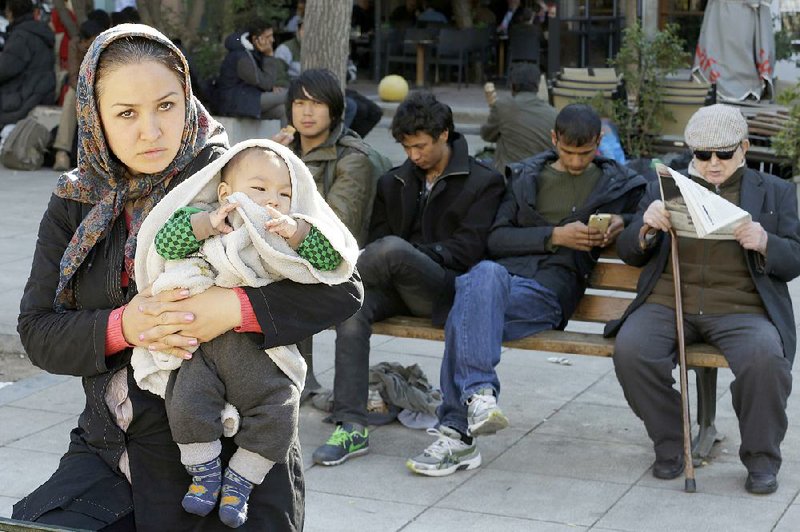CALAIS, France -- Riot police and migrants camped near the French port of Calais have clashed in overnight violence that aid workers said reflects the growing frustration of migrants' inability to smuggle themselves aboard trucks and trains bound for England.
Calais police said officers monitoring the 6,000-resident shantytown east of the port city were pelted with rocks after midnight Monday and again Tuesday as migrants repeatedly tried to block a neighboring highway that leads to the main ferry terminal. They said 27 officers suffered minor injuries, including 11 early Tuesday.
Aid workers said police fired tear gas canisters at rock-throwing crowds on the highway and in the camp. Migrants said sparks and heat from some canisters caused scorch damage to tents, but no serious injuries were reported as most campers sought safety inside their tents and shacks.
"Police came into the camp, halfway up the main drag, and fired tear gas right into the camp," said Rowan Farrell, a volunteer from Manchester, England, who helps to run a library and other support services for the camp.
Tensions have been mounting since France started imposing new security measures, including 15-foot-high razor-wire topped fences and increased police patrols, to stop the flow of people from reaching Britain by boat or train.
Police said they fired tear gas to force migrants off the highway that overlooks the camp and leads to cargo and passenger ferries less than 1 mile away. They said the latest overnight clashes lasted about five hours.
Campers said Muslim hard-liners in the camp were angered by news Sunday of an anti-immigrant demonstration in the center of Calais. That rally attracted barely 80 people.
But migrants and the foreign volunteers helping them in the camp say the rising nighttime unrest chiefly reflects growing frustration, particularly among young, single men given lowest priority for better housing, because the tightened security has effectively killed their hopes of reaching Britain.
"There's more and more desperation in the camp coming to a climax," Farrell said.
Over the past two weeks, Calais police have increased police monitoring of the camp, which is tolerated by French authorities but supported largely by private charities.
Also Tuesday, European Union data showed its asylum system is so clogged with applications that it would take a year to clear the backlog, even if migrants stopped arriving in Europe immediately.
The applications of more than 770,000 people seeking international protection in the EU were on hold in September, according to the European Asylum Support Office. Currently, the 28 EU countries are able to process around 60,000 cases per month.
Almost one in three people has been waiting at least six months for his application to be processed. More than 200,000 have been in limbo for six months, in a trend the European Asylum Support Office calls "worrying."
The European Asylum Support Office figures were made public on the eve of a major migration summit of EU and African leaders in Malta.
The data will do little to ease concerns that people seeking refuge in Europe will have to be held longer-term in reception centers. Applicants are not supposed to leave the country where they apply, but many are moving on and applying elsewhere as they move toward preferred destinations such as Germany or Sweden.
Germany has the highest number of pending cases in Europe, with 346,000 on hold in August. Most have been made by people who were born in Balkan countries and who have very little chance of being granted asylum.
Addressing the Maltese parliament, EU Council President Donald Tusk said that asylum applications were "at an all-time record number that would test any democracy."
The statistics show that more than half of asylum applications were lodged by people from Syria, the Balkans and Afghanistan. Fewer are from Africa, although many Eritreans are applying.
Information for this article was contributed by Lori Hinnant and Lorne Cook of The Associated Press.
A Section on 11/11/2015


